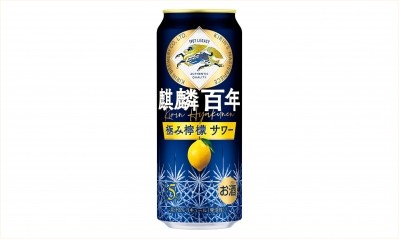Keeping up with the times: Indonesia rolls out new food category regulations with fermented products and supply chain focus

The last time Indonesia rolled out a version of this regulation, dubbed the National Agency of Drug and Food Control (BPOM) Food Category Regulation, was in 2019, meaning that this predated both the COVID-19 pandemic as well as the nation’s much-debated Omnibus Law.
BPOM has now launched the most updated version in an attempt to better integrate the local food supply with technological updates and the latest trends.
“BPOM has found that the food category requirements as arranged in the 2019 version of these regulations are no longer in line with the development of knowledge, technology and innovation in the food industry, and now need to be replaced,” BPOM Head Penny Lukito said via a formal statement.
“This new update comes into effect immediately after promulgation, and will override all previous regulations. All food products that had obtained approvals for distribution in the food system before this new regulation will need to transition to meet the new requirements latest 30 months after this is enforced.”
The new regulations outline several changes but one of the most prominent is in the fermented product categories, which received some of the heaviest rewriting and additions in the new version according to FoodNavigator-Asia analysis.
“[For fermented foods and beverages], some of the lactic acid bacteria allowed for use in fermentation include Lactococcus spp, Lactobacillus spp, Leuconostoc spp, Streptococcus thermophiles – either individually or in combination, and with or without the addition of Bifidobacterium spp.,” BPOM stated in clarification of previous confusion over the allowed and disallowed types of bacteria allowed in the food supply.
“There are now also specifications for the fermented food tapai – this should be made from tapioca, cassava [or the root vegetable of choice] that is steamed and then fermented with tapai yeast overnight or over several days until it has a sweet-sour flavour.
“[The traditional Japanese fermented food] natto will also now specifically need to have been prepared using natto culture (Bacillus substilis) in order to be categorised as natto, whereas before the culture was not specified.”
The categorisations of fermented dairy beverages saw rearrangements within the dairy category, but more interesting was the addition of two new fermented beverage categories into the regulations, namely carbonated fermented drinks and fermented teas.
“Carbonated fermented drinks are beverages that must be obtained from the process of fermentation with lactic acid bacteria, with or without the addition of other accepted microorganisms, and then have carbon dioxide added to it,” said BPOM.
“Fermented tea drinks on the other hand are mostly known as kombucha, and these must originate from tea leaves (Camellia sinensis L.) that are fermented with the Symbiotic Culture of Bacteria and Yeast (SCOBY) – other drinks may not be referred to as kombucha.”
The regulations have also expanded its scope into categorisation for various ingredients in the food value chain, such as defining the content of what may be called tapai yeast.
“Tapai yeast must have a microorganism content including fungi (such as Mucor, Rhizopus, Amylomyces rouxii), yeast (such as Saccharomyces, Hansenula, Candida, Endomycopsis, Saccharomycopsis fibuligera, Hyphopichia), lactic acid bacteria (such as Lactobacillus, Pediococcus, Weisella) and acetic acid bacteria (such as Acetobacter),” it stated.
“There are now also more specific definitions for raw food materials, which will be defined as either fresh foods or ingredients from plant or animal origin, used to make processed foods and beverages – there is also a list of items that food and beverage firms must adhere to when selecting these ingredients.”
Protecting higher value
In addition to the food safety aspects of changes, the regulations also appear to target the protection of higher value items by defining the characteristics by which they are named.
One instance is comb honey, which is generally more expensive than liquid bottled honey due to a higher perception of freshness and authenticity. In order to ensure that these characteristics are truly met when consumers pay a higher price tag, BPOM has also included a definition for this in the new regulations.
“Comb honey is honey that has been kept in the honeycombs produced by bees and have not gone through any form of processing to separate the honey from the beeswax,” it said.
“This comb honey must be free of any bees or stings or relevant pieces i.e. any physical contamination when it is sold.”






















